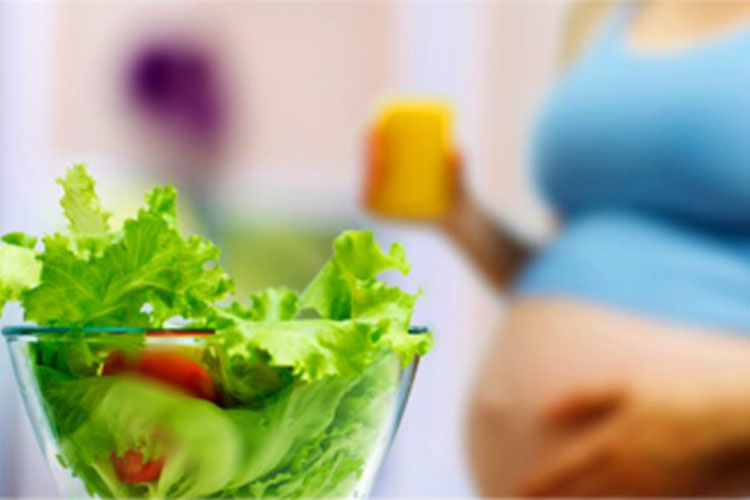Pregnant women need to reconsider ‘eating for two’ according to study which finds a link between maternal weight gain and diabetes, obesity in children.
Children face a greater risk of diabetes and obesity if their mothers gain too much or too little weight during pregnancy, according to researchers at a Hong Kong University.
The international study, by Chinese University (CUHK), found even a mild elevation of glucose in expectant mothers was associated with an excess birthweight and increased chance of pregnancy complications. It followed research on 800 pairs of Hong Kong mothers and children for 11 years, part of a broader Hyperglycaemia and Adverse Pregnancy Outcome study involving 25,000 pregnant women from 15 centers worldwide.
The study also dismissed the idea of “eating for two”, said Professor Tam Wing-hung of the Department of Obstetrics and Gynaecology, explaining there was a U-shaped relationship between a pregnant mother’s weight gain and cardiovascular risks in offspring.
“Gaining too much or too little weight will both result in health problems, such as high blood pressure and poorer blood sugar control for children,” Tam said.
HOW MUCH SHOULD YOU EAT?
Bear in mind that we’re all different shapes and sizes, and some of us are more active than others. So any recommendation about the number of calories you need when you’re pregnant is based on averages.
While pregnancy is not the time to lose weight, women should not use their expanding bellies as a reason to eat more than is necessary.
The number of calories you need while you are pregnant depends on:
- your height
- your current weight
- how active you are
- your body composition and genetics
Most professionals recommend eating an average of 300 extra calories per day during pregnancy. That means usually a bit less in the first trimester – around 200 calories – and closer to 400 in the third trimester.
A gradual increase in calories as the baby grows is the best bet. Here is an overview of how calorie needs change during each trimester:
- The first trimester requires nil to around 200 extra calories.
- During the second trimester, an additional 300-400 calories a day are recommended.
- For the third trimester, the recommendation is 400-500 calories more a day than when not pregnant.
WHAT SHOULD YOU EAT?
For a healthy pregnancy, the mother’s diet needs to be balanced and nutritious – this involves the right balance of proteins, carbohydrates, and fats, and consuming a wide variety of plants like vegetables, and fruits.
Additional calories should come from nutrient-dense foods including lean protein, whole grains, dairy, vegetables, and fruit. Avoid unneeded extra calories by cutting down on foods high in fat and added sugars such as regular soda, sweets, and fried foods.
What a pregnant mother need is a balanced diet, meeting such requirements with adequate micronutrients. They also need to have moderate exercise to avoid putting on excessive weight. So, unfortunately, we shouldn’t double our caloric intake and ‘eat for two’ while pregnant, even with our famished pregnancy cravings. Research has found a healthy diet, combined with
physical activity during pregnancy reduces the risk of developing Gestational Diabetes by 83%. Regardless of your risk level, pregnant women need an adequate intake of many macro and micronutrients. Pregnancy isn’t the time to starve yourself; just make healthy choices when you are hungry.
These tips will help you to feel full while keeping your calorie count under control:
- Eat breakfast every day. If you feel sick in the morning, try nibbling dry toast or crackers when you wake up. Staying empty stomach will worsen your morning sickness.
- Help to control your appetite by eating high-fiber foods, drinking plenty of water.
- Eat at least five portions of fruit and vegetables a day.
- Keep healthy foods to hand. A fruit bowl filled with apples, bananas, peaches, oranges, and grapes makes it easy to grab a healthy snack.
- Also try a handful of mixed nuts, plain yogurt.
- Have a small amount of protein, such as lean chicken, with each meal. Balanced meals help you to feel fuller for longer.
There are lots of delicious, healthy snacks you can have for an extra 200 calories in your third trimester. Here are a few ideas to get you started:
- An apple and a banana.
- Two boiled eggs.
- A small disc sized roti, with 3 ounces of skinless, boneless roasted chicken.
- A small bowl of porridge muesli with milk, and an apple.
- A slice of wholegrain toast, with peanut butter or some cheese.
- A cup of fresh unsweetened yogurt.
If you develop gestational diabetes and your body mass index (BMI) was 27 or over before you became pregnant, your doctor may give you different advice to help you manage the levels of sugar (glucose) in your blood.

